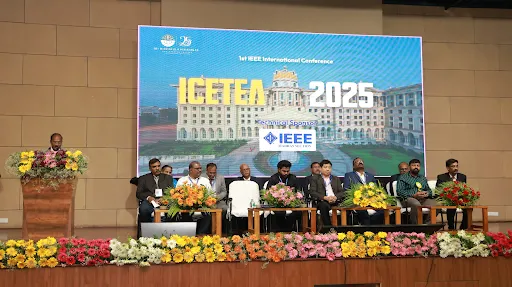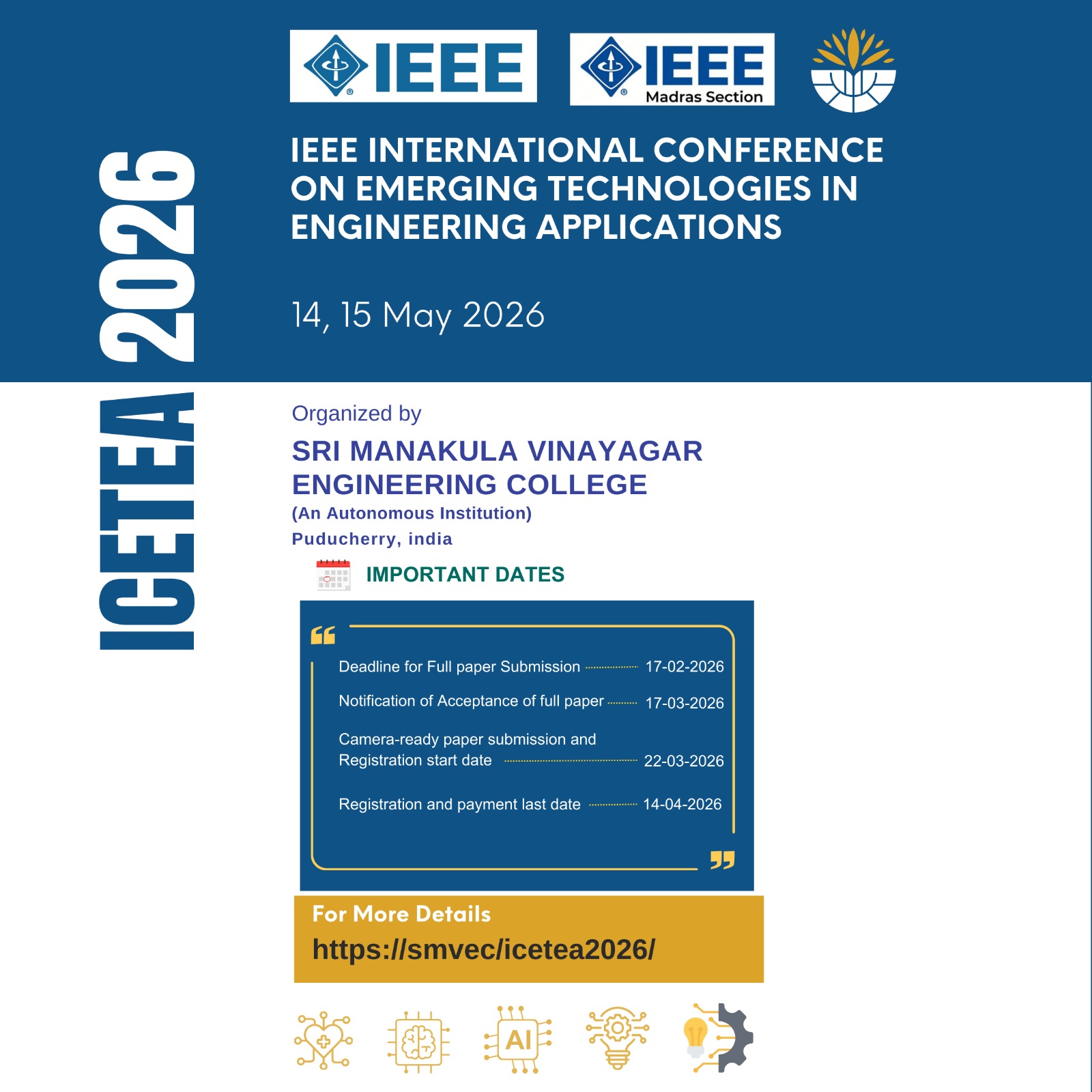Exploring the Future of Engineering Innovation
Sri Manakula Vinayagar Engineering College (SMVEC), Puducherry, proudly hosted the 1st IEEE International Conference on Emerging Technologies in Engineering Applications (ICETEA) — a landmark event that brought together researchers and academic pioneers under one roof to explore the next wave of transformative technologies.
A Grand Opening: Embracing Culture and Tradition
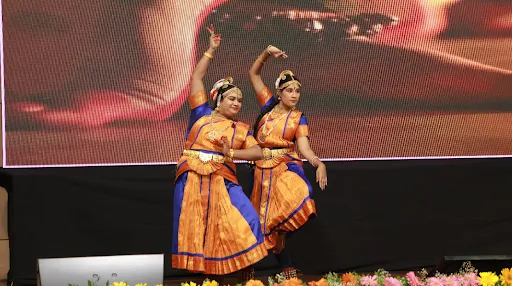
The event began on a vibrant and graceful note with a captivating welcome dance performance by the talented students of the Electronics and Communication Engineering (ECE) Department. Their elegant moves and expressive choreography set a warm and festive tone, symbolizing the spirit of hospitality and cultural pride that the conference upholds.
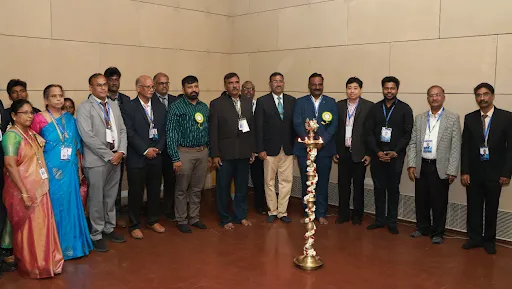
The inaugural ceremony continued with the traditional lighting of the lamp, a ritual that signifies the dispelling of darkness and the ushering in of knowledge, wisdom, and enlightenment. The dignitaries and esteemed chief guests were invited to the stage to participate in this auspicious moment. As the ceremonial lamps were lit, the glow symbolized the beginning of a promising journey — one filled with ideas, innovation, and inspiration.
A Warm Welcome to Ignite the Conference Spirit
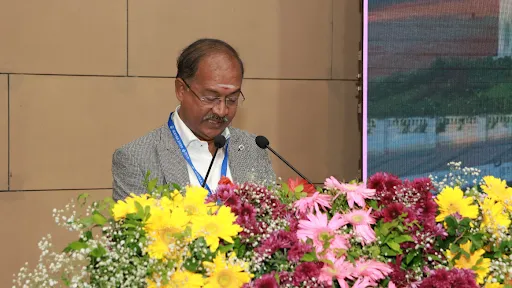
The inaugural session of the event was marked by an inspiring welcome address delivered by Dr. V. S. K. Venkatachalapathy, Director-cum-Principal of the institution. With grace and warmth, he extended heartfelt greetings to the distinguished dignitaries, enthusiastic participants, respected deans, heads of departments, dedicated faculty members, and all attendees who had gathered to celebrate the spirit of innovation and academic excellence.
Honoring the Chief Guest
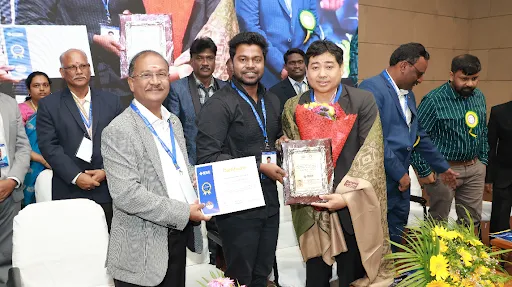
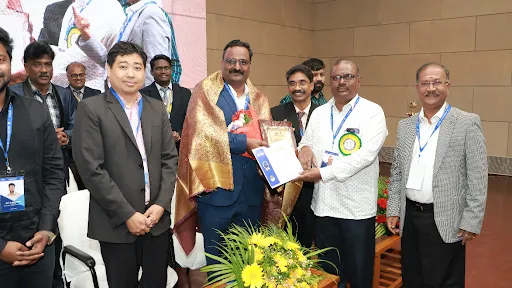
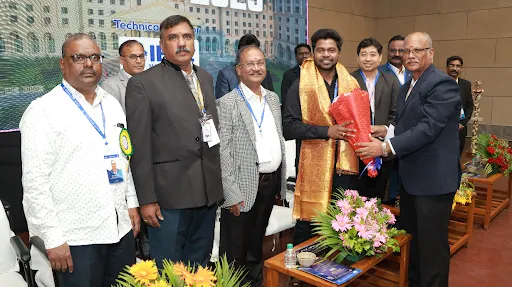
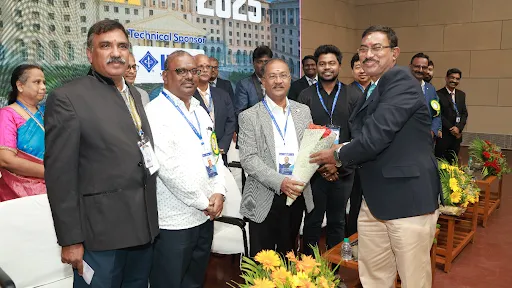
Conference Overview
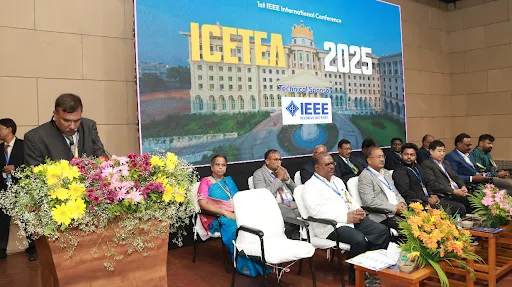
Dr. K. Velmurugan, Dean – Research and Development, delivered an insightful overview of the International Conference on Emerging Trends in Engineering and Applications (ICETEA 2025). He emphasized the conference’s theme, “Empowering Innovation, shaping a Sustainable Future”, and its role in fostering interdisciplinary collaboration and knowledge-sharing among researchers, scholars, and professionals aligned with national and global research priorities. Highlighting the overwhelming response, he shared that ICETEA 2025 received 1,542 paper submissions from 177 national and 7 international institutions, with 203 high-quality papers selected through a rigorous review process. With focused tracks on emerging areas such as 6G, blockchain, robotics, and quantum computing, and He expressed confidence that the conference would inspire meaningful innovation and impactful research collaborations.
Releasing of Conference Proceedings: A Milestone Moment
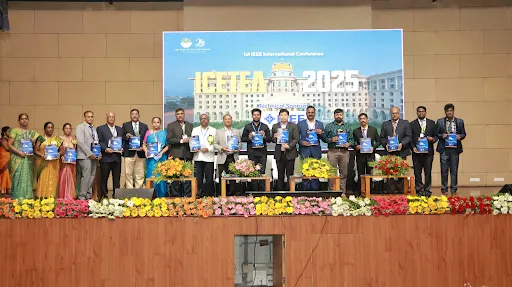
One of the most significant highlights of ICETEA 2025 was the official release of the Conference Proceedings, marking the formal inauguration of the research showcase. In a symbolic and prestigious gesture, the Chief Guest unveiled the proceedings, signifying the culmination of months of rigorous academic preparation, peer review, and collaboration.
The released volume was graciously received by the Treasurer and Managing Director, representing the leadership and vision behind the institution’s academic excellence. This moment underscored the commitment to promoting high-quality research and provided a platform for the 204 selected papers to reach a wider academic and professional audience. The proceedings reflect the diverse innovations and scholarly work that the conference proudly brings to the global engineering community.
Felicitation Address
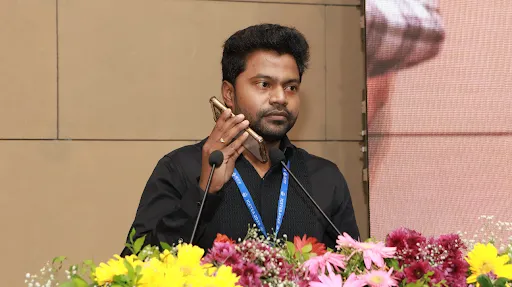
Shri D. Rajarajan, Treasurer of Sri Manakula Vinayagar Educational Trust (SMVET), delivered an inspiring Felicitation Address at ICETEA 2025, expressing confidence that the conference would spark innovation, foster interdisciplinary collaboration, and promote knowledge-sharing. He emphasized the growing role of generative AI in shaping the future and captivated the audience by playing a Tamil Hip Hop song generated just 30 minutes earlier using a single prompt, showcasing AI’s creative potential in regional languages.
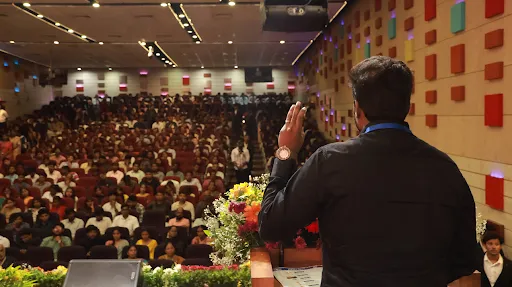
Introducing Google’s advanced VO3 model, He highlighted its ability to generate ultra-realistic audio and video, predicting that AI-generated content will soon dominate platforms like YouTube and Instagram. He underscored the shift toward mobile-first Edge AI, urging participants to develop smart, on-device applications. Concluding on a forward-looking note, he encouraged attendees to embrace the AI revolution and contribute impactful, original innovations to the technological landscape.
Special Address
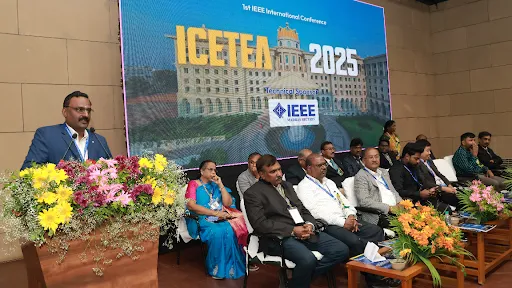
Dr. V. Nagarajan, Professor, School of Electronics, Pondicherry University, began by emphasizing the importance of publishing on reputed global platforms like IEEE, which play a key role in sharing impactful research. He noted that while publishing in IEEE has become more streamlined, organizing high-quality, plagiarism-free conferences is now the greater challenge. He warned that papers with over 15% plagiarism risk blacklisting by IEEE and institutions like Anna University, and urged researchers to focus on original, ethical, and collaborative work. He also highlighted that only 25 out of 250 conference proposals were approved by the IEEE Metro Section this year, underscoring the increasing standards in academic publishing.
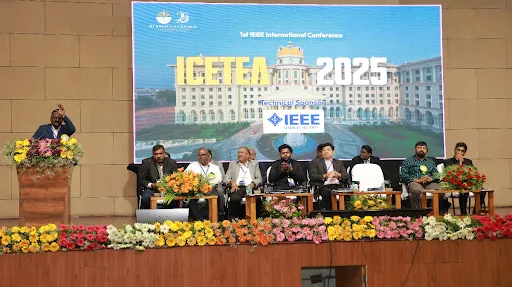
Speaking on the conference theme, he traced the evolution of wireless communication—from analog systems to cutting-edge 6G terahertz (THz) technology used in high-speed, non-invasive applications. Drawing a parallel with figures like Galileo and Copernicus, he described researchers as discoverers who must interpret and present knowledge responsibly. Encouraging scholars to publish through credible platforms like IEEE, Elsevier, and Springer, He reflected on his own academic journey—from earning a single certificate as a student to organizing over 200 IEEE conferences—crediting these experiences for shaping his professional path.
Chief Guest Address
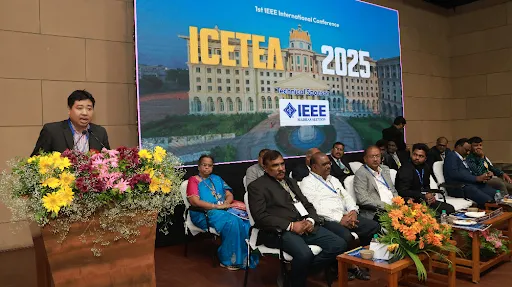
The Chief Guest Address was delivered by Dr. Vitawat Sittakul, Professor at King Mongkut’s University of Technology, Bangkok, delivered an inspiring and globally-minded address that set a collaborative tone for the conference. Marking his first visit to an IEEE conference in India, He expressed his delight at being part of such a prestigious event in the scenic city of Puducherry. He commended the exceptional organization and strong teamwork evident at the inaugural ICETEA hosted by SMVEC, drawing comparisons with his own experience as an organizing chair in Thailand.
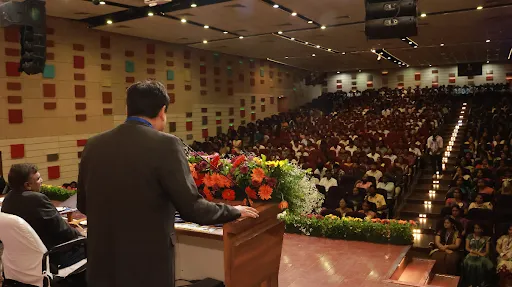
He highlighted the significance of the conference’s central theme—Emerging Technologies in Engineering Applications—and spoke about the growing need to incorporate cutting-edge technologies such as Artificial Intelligence, the Internet of Things (IoT), and Digital Twin systems into engineering education. He strongly advocated for the use of immersive platforms like the metaverse and mobile-based learning tools to revolutionize academic engagement, making education more interactive and impactful. His insights brought a valuable global perspective to the event and encouraged participants to rethink and innovate the way engineering is taught and applied.
The Conference Starts:
ICETEA 2025 seeks to feature high-quality, original research papers that make substantial contributions to cutting-edge technologies within its key focus areas. Fields of interest include communication, signal and image processing, networks and cloud computing, digital manufacturing, automation and robotics, blockchain, quantum computing, big data analytics, electrical engineering. The papers are invited in the following tracks.
Participant Registration and Track Allocation
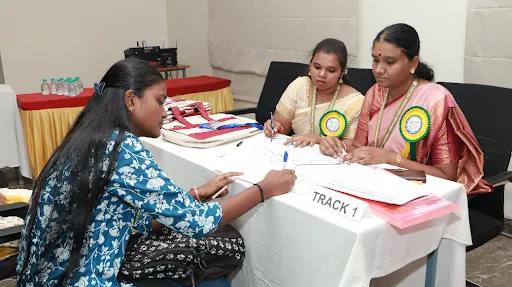
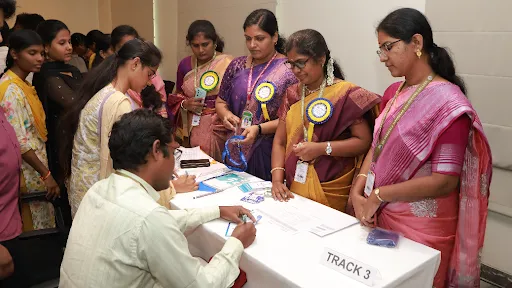
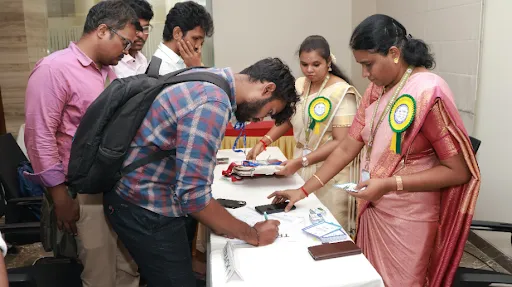
The student participants began their journey by successfully completing the registration process. Upon registration, each participant was provided with a unique enrollment number. This number served as their identifier throughout the event and was used to allocate them to their respective tracks or categories of participation.
The papers are invited in the following tracks.
Track 1 – Communication, Signal & Image Processing
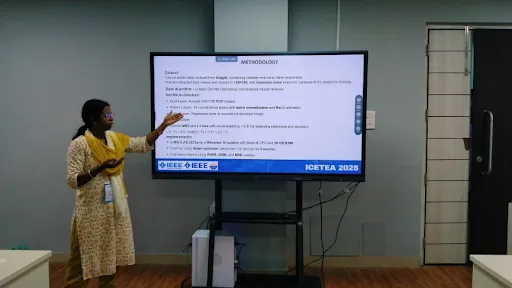
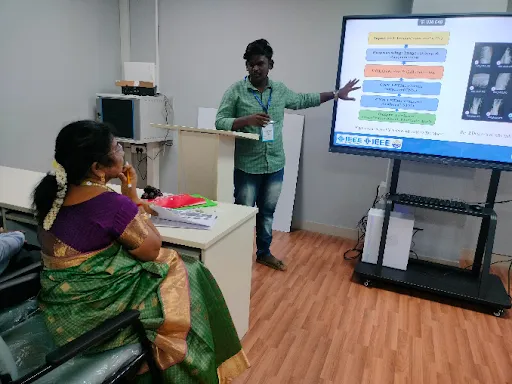
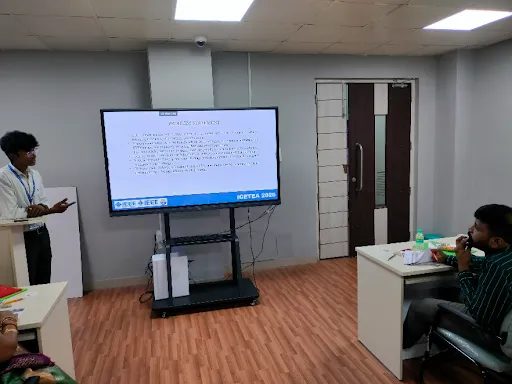
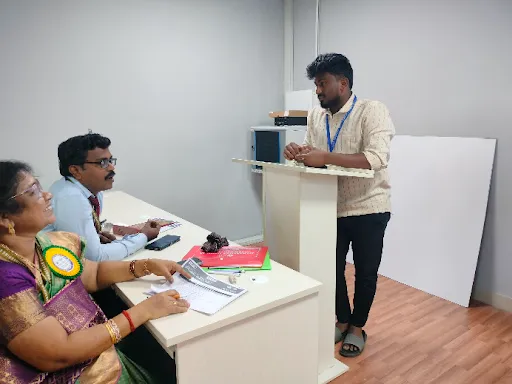
- Semiconductor Device Modeling
- VLSI for Communication, Singal Processing
- Antenna Modeling and Measurements
- Multimedia Processing and Communication
- Modulation Coding and Diversity
- 5G/6G systems
- Statistical Signal Processing and Modeling
- Pattern Recognition
- Bio signal and Medical Image Processing
- Applications of AI in Telemedicine
Track 2 – Networks and Cloud Computing
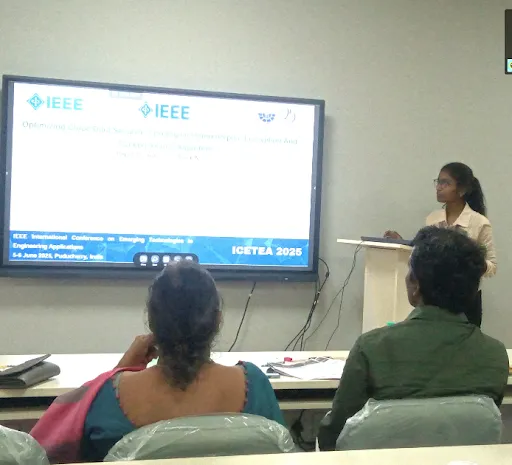
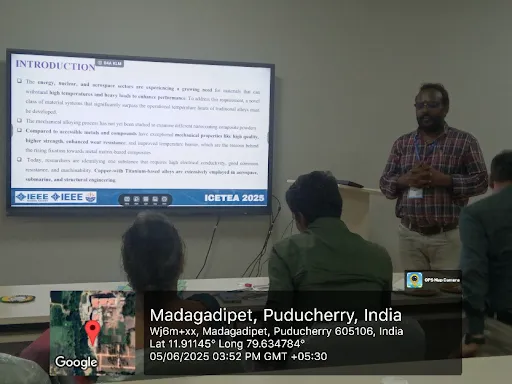
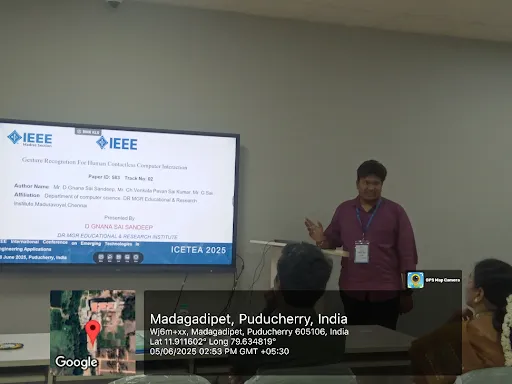
- Network Protocol and Congestion Control
- Intelligent sensors and sensor networks
- Networking and Information Security
- Multi hop and Cooperative Communication
- Ubiquitous Network
- Optical Networks Performance Modeling
- Emerging Wireless/ Mobile applications
- Software Defined Radio, Cognitive Radio
- Cloud Computing and Automation
- Image Processing and Computer Vision
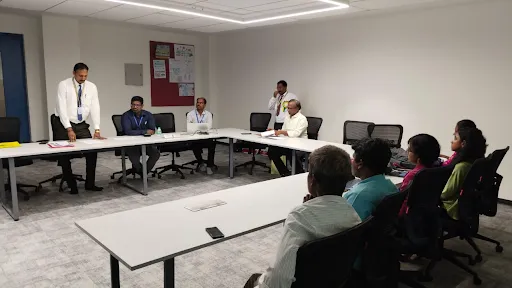
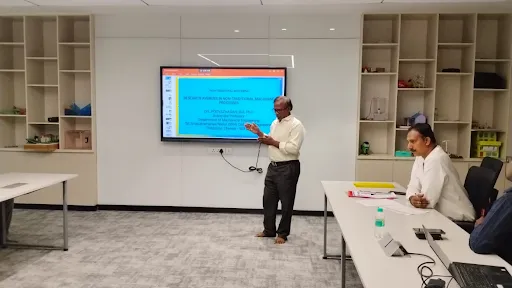
Track 3 – Digital Manufacturing, Automation and Robotics
- AI powered IOT applications
- IoT in Medical and Engineering
- Intelligent Transportation systems
- Adhoc Sensor and Mesh Networking
- Human-machine interaction
- Situational awareness systems
- Edge Computing
- Embedded Systems and VLSI
- Smart Materials in Advanced Manufacturing
- Digital Twins and Automation
- Engineering Design and Optimization
- Wearable Systems
Track 4 – Blockchain, Quantum Computing and Big Data Analytics
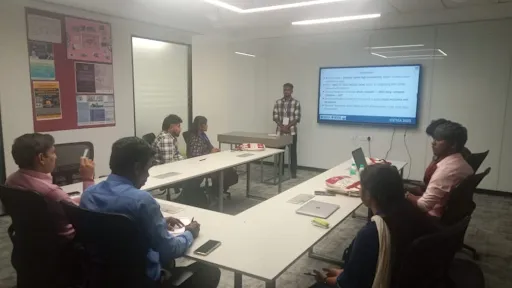
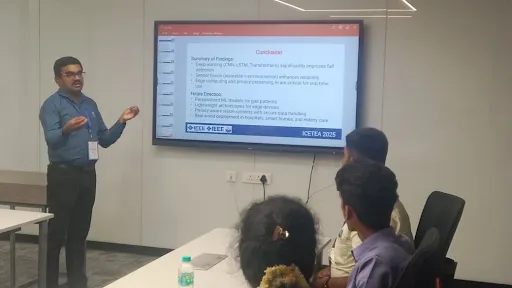
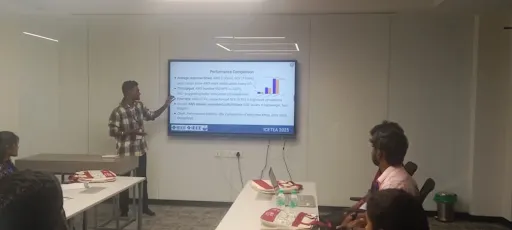
- Blockchain in social networking
- Blockchain in edge and cloud computing
- Machine Learning and Deep Learning
- Big Data Protection, Integrity and Privacy
- Big Data Models and Algorithms
- Generative AI for Emerging Technologies
- LLM for Emerging Technologies
- Quantum Computing and Simulation
- Big Data for Computation and Informatics
Track 5 – Electrical Engineering
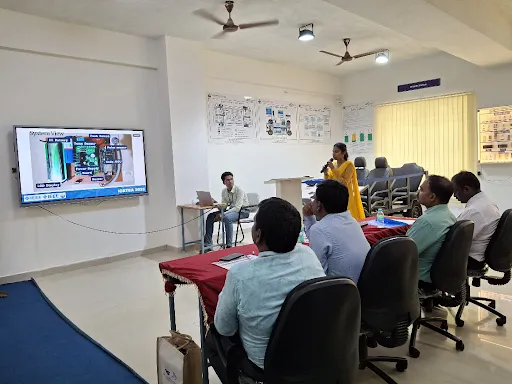
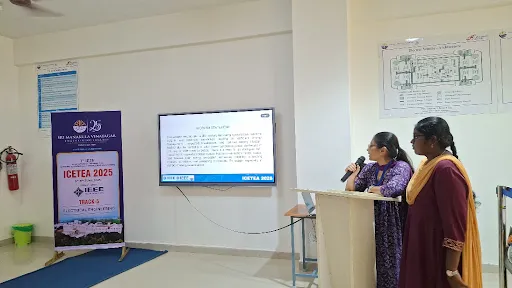
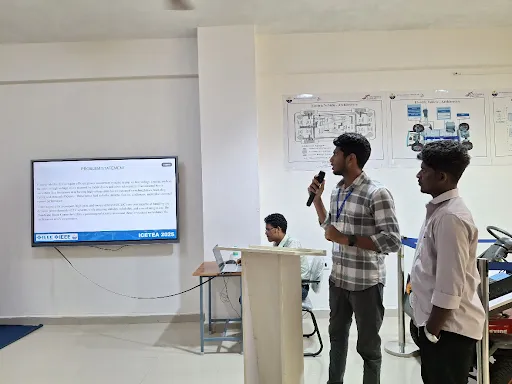
- Wireless Power Transfer System
- Electric Vehicle and Fuel Cells
- Sustainable Green Energy Systems
- Motor Drives, Electrical Machines and Industry Applications
- High Voltage Engineering and Insulation Technology
- Intelligent Techniques
- Distributed Generation and Energy Storage
- Bio-Electronics
- Power Electronics Converter and Design Issues
Recognition Through Certification
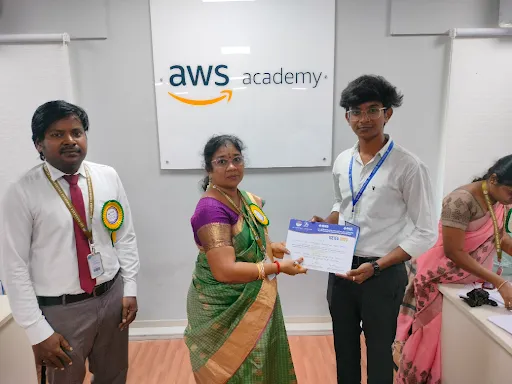
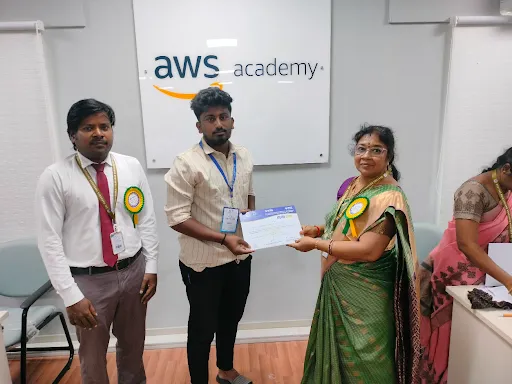
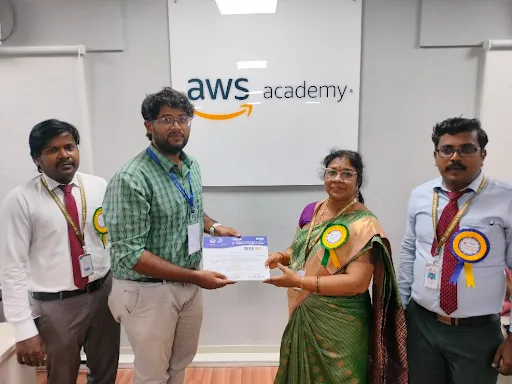
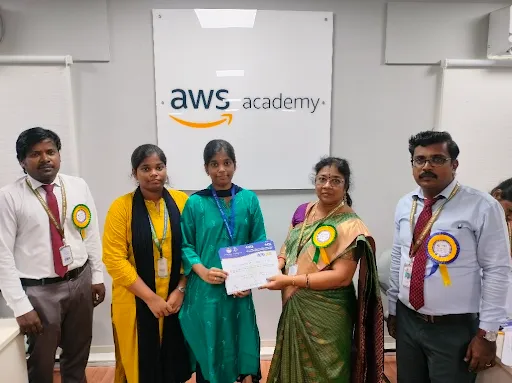
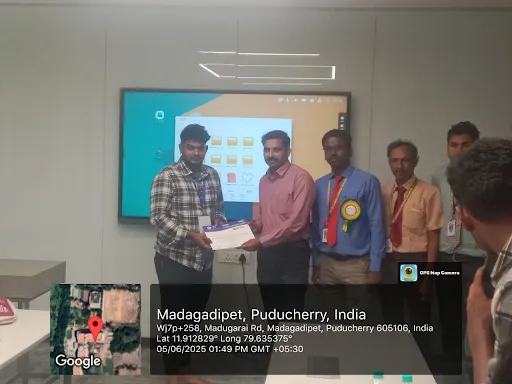
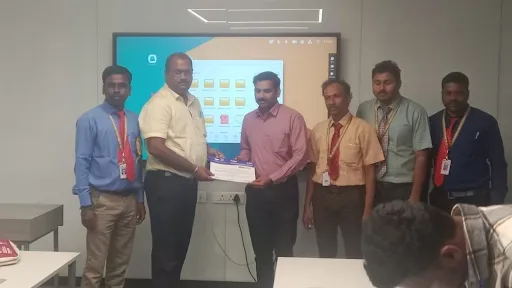
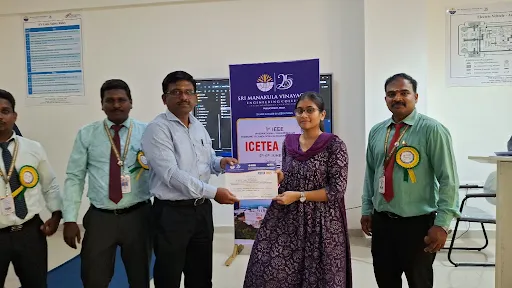
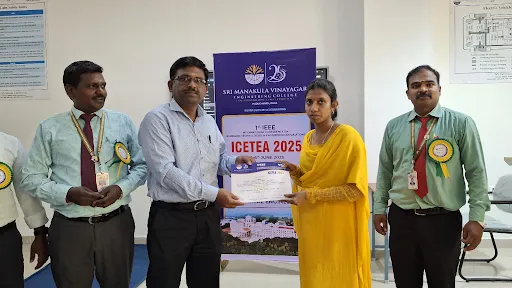
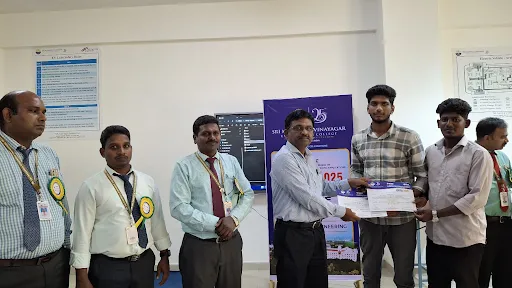
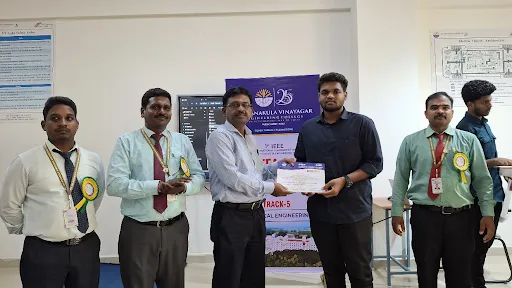
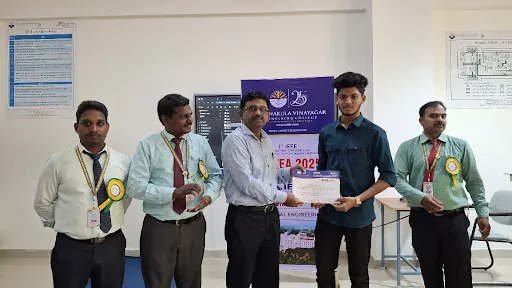
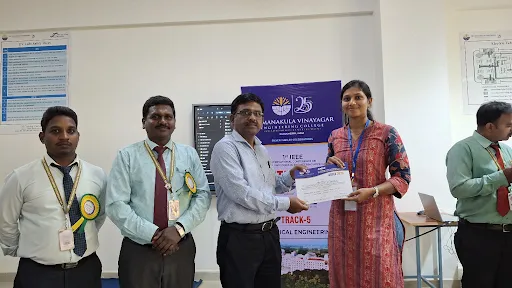
To honor the efforts and scholarly contribution of the selected authors and presenters, the conference organizers issued certificates of recognition to all participants whose papers were accepted. These certificates not only mark a significant academic achievement but also recognize the vital role of researchers in advancing global technological progress.
Conclusion
A Promising Beginning for a Future of Innovation
The 1st IEEE International Conference on Emerging Technologies in Engineering Applications (ICETEA 2025) concluded on a high note, leaving behind a legacy of knowledge exchange, cross-disciplinary collaboration, and global academic engagement.
With 203 high-quality papers selected from over 1,500 submissions, ICETEA 2025 provided a credible platform for researchers, scholars, and professionals to present cutting-edge innovations and engage in meaningful dialogue. The active participation of students, faculty, industry experts, and international dignitaries made this inaugural edition truly memorable.

